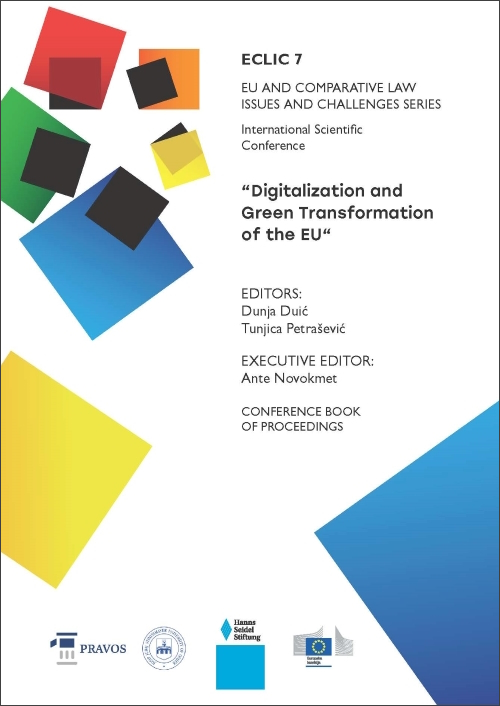DIGITALIZATION OF PROCEDURES IN SPATIAL PLANNING AND CONSTRUCTION LAW IN CROATIA
DOI:
https://doi.org/10.25234/eclic/27450Abstract
Spatial planning and construction are interdisciplinary areas in which various factors interweave, such as sociological, cultural, economic, environmental, etc. In the process of spatial planning, green and digital transformation has an indispensable role. Spatial plans’ developers should take into account protection of the environment, which is emphasized in the soft law mechanisms of the European Union (such as the European Green Deal) and the national spatial planning legislation. The aim of the paper is to present the EU legislation on the digitalization of spatial planning which reflects principles of the good administration as laid out in the Charter of the European Union on Fundamental Rights (effective, efficient and transparent public administration) and to research whether Croatia has suitable legislative framework for the digitalization in the area of spatial planning and construction. An additional goal is to research whether the legislative framework is functional and whether obstacles occur in practice. The paper is therefore divided in five chapters. After the introduction, the paper presents EU legislation, namely the so-called INSPIRE directive which serves as a basic tool for the harmonization of EU Member State’s policies regarding environmental questions and as a basis for the national spatial data infrastructures. The next chapter analyzes Croatian response to the INSPIRE directive after the accession of Croatia into the EU in 2013, till the recently adopted Digital Strategy of Croatia in 2023. After the insight into the context of the digitalization of Croatian public administration sector, research is focused on the Regulatory Framework of the Physical Planning Information System and on the reflection of the digitalization in procedures of the protection of the objective legality and subjective rights of the citizens. In those procedures, citizens are considered as collaborators who participate in the process of the spatial plan development. In the final part of the paper, recommendations are given for a better functioning of the digitalized procedures in the area of spatial planning and construction law in Croatia.
Downloads
Published
How to Cite
Issue
Section
License
Copyright (c) 2023 Mateja Held

This work is licensed under a Creative Commons Attribution-NonCommercial 4.0 International License.
Authors retain the copyright on the papers published in the Journal, but grant the right of first publication to the Journal. Papers accepted for publication or already published in ECLIC of the Faculty of Law in Osijek may be published by the author(s) in other publications only with proper notice of its previous publication in ECLIC.


